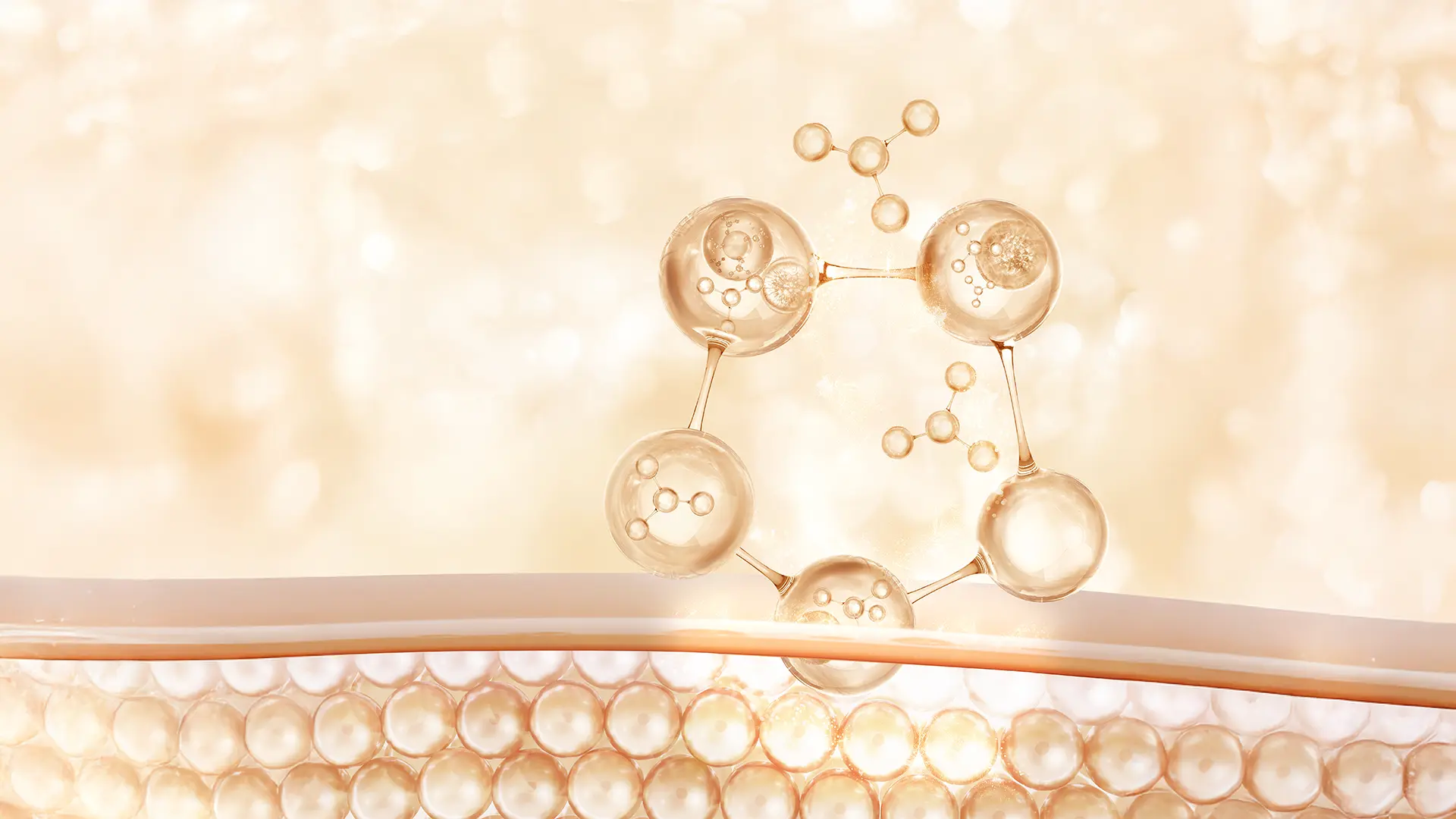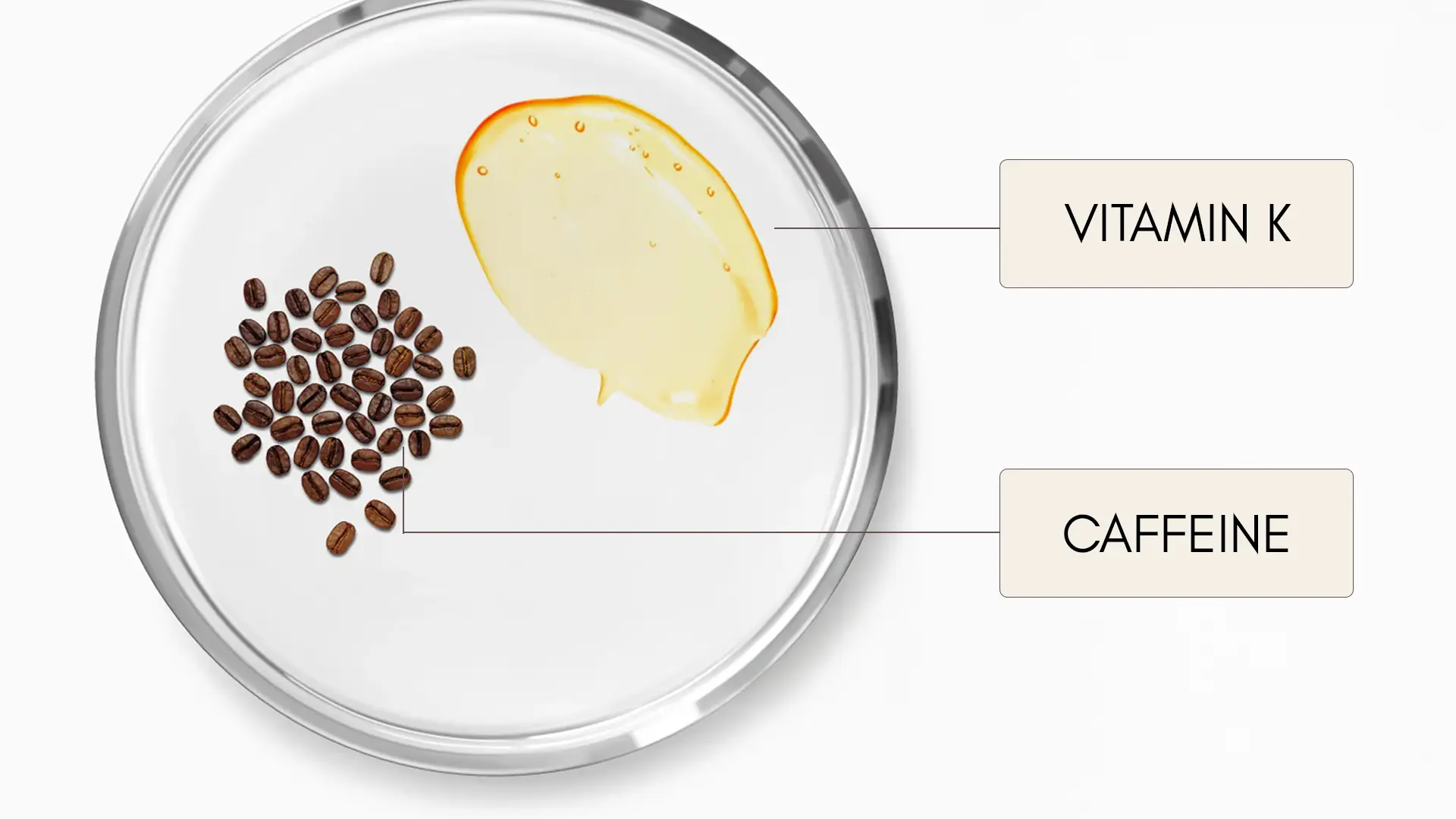Table of Contents
What is Vitamin E?
Where Does Vitamin E Come From?
Why is Vitamin E Used in Skincare?
Benefits of Vitamin E for Skin
How Is It Used in Our Products?
How Much Vitamin E Do You Need?
What Happens If You Have Too Much Vitamin E?
What is Vitamin E?
Vitamin E, also known as alpha-tocopherol, is a powerful fat-soluble antioxidant that plays a crucial role in protecting and nourishing the skin by combating unstable molecules that can cause stress and damage to skin cells. In skincare, vitamin E is commonly used in the form of tocopherol or tocopheryl acetate, both of which are readily absorbed by the skin to deliver antioxidant protection and deep hydration.
Where Does Vitamin E Come From?
Although Vitamin E is naturally present in sebum on the surface of the skin, a significant quantity of it is found in healthy fat-rich foods such as avocado, almonds, olive oil, and sunflower oil. Additionally, oleaginous fruits (walnuts and hazelnuts), fruit and vegetables (mango, kiwi, and spinach) are also rich in vitamin E.
Why is Vitamin E Used in Skincare?
Credits to its multiple benefits, Vitamin E is widely used in skincare products. Along with its primary role as a potent antioxidant that protects from free radicals, vitamin E is also an excellent moisturiser. It fortifies the skin’s natural barrier by locking in the moisture, keeping skin hydrated and plump for long hours. Moreover, vitamin E also brightens dull and pigmented skin when combined with vitamin C.
The Benefits of Vitamin E for Your Skin
- Antioxidant Protection: Antioxidant Protection: Vitamin E protects skin cells from oxidative stress caused by UV rays and pollution by neutralizing free radicals, reducing early aging over time.
- Deep Hydration: Vitamin E acts as both a humectant and emollient, which means it attracts moisture to the skin and locks it in to ensure long-lasting hydration and supple skin.
- Skin Barrier Support: Vitamin E helps minimise water loss and protects against external irritants by reinforcing the skin’s natural barrier.
- Soothing and Healing: Its anti-inflammatory properties work efficiently to reduce redness and irritation. Furthermore, vitamin E also aids in restoring damaged skin, promoting faster healing of scars and blemishes.
- Brightening and Even Tone: When combined with vitamin C, vitamin E helps diminish dark spots and discoloration, delivering a radiant and balanced skin tone.
How is it used in our products?
Vitamin E is a timeless skincare ingredient renowned for its ability to protect, nourish, and revive the skin. In Alive+Well’s 24KT Golden Hour Glow Facial Oil, we have blended vitamin E with other skin-loving ingredients to provide your skin with the hydration, protection, and radiance it deserves. The antioxidant power of vitamin E in the Golden Hour Glow Facial Oil helps in getting rid of fine lines and wrinkles while its soothing properties calm the skin, making the oil suitable even for sensitive skin types.
How Much Vitamin E Do You Need?
The recommended daily amount of vitamin E for adults aged 14 years and older is 15 milligrams (mg) per day, including pregnant women, while breastfeeding women need slightly more at 19 mg daily.
What Happens If You Have Too Much Vitamin E?
Taking vitamin E in excess, especially through supplements, can be dangerous. The tolerable upper intake level for adults is set at 1,000 mg per day (equivalent to 1,500 IU of natural or 1,100 IU of synthetic vitamin E). Consuming vitamin E above this limit increases the risk of serious side effects, including prostate cancer and blood clotting, and an increased risk of bleeding.
FAQ
1 What is the vitamin E good for?
Vitamin E helps maintain healthy skin and eyes, and strengthen the body’s natural defence against illness and infection (the immune system).
2 Which food is rich in vitamin E?
Foods like wheat germ oil, almonds, sunflower seeds, peanuts, and avocados are excellent sources of vitamin E. Other vitamin E-rich foods include sunflower oil, spinach, mangoes, kiwi fruit, and red bell peppers.
3 What is the function of the vitamin E?
It helps keep the immune system strong against viruses and bacteria. It helps form red blood cells and widen blood vessels to keep blood from clotting inside them. It helps the body use vitamin K. Cells also use vitamin E to interact with each other.
4 What are symptoms of lack of vitamin E?
Patients presenting early may show hyporeflexia, decreased night vision, loss/decreased vibratory sense; however, they have normal cognition. A more moderate stage of this deficiency may show limb and truncal ataxia, profuse muscle weakness, and limited upward gaze.
5 Does vitamin E help skin?
Yes, vitamin E can be beneficial for the skin, acting as an antioxidant and moisturizer. It helps protect skin cells from damage caused by free radicals, strengthens the skin barrier, and may contribute to skin regeneration and turnover.



